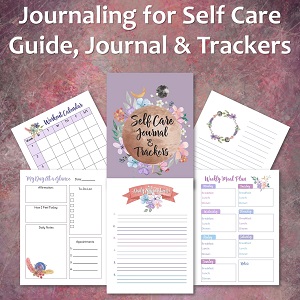 Everyone has heard the word stress, but what does it really mean? The truth is there are several different kinds of stress. Learning how to cope with each one can help you master stress management and lead a happier life.
Everyone has heard the word stress, but what does it really mean? The truth is there are several different kinds of stress. Learning how to cope with each one can help you master stress management and lead a happier life.
Let’s start with a definition of each type of stress, so we can understand why there is such a thing as positive and negative stress.
What is Stress?
Stress can be defined as:
- Pressure or tension exerted on a material object.
- A state of mental or emotional strain or tension resulting from difficult or very demanding circumstances.
We talk all the time about being stressed and stressing out, but not all stress is created equal. Some stress can be positive and helpful. Other stress can drag people down to the point where they might even become ill because of it. Learning how to manage stress in one’s life is a key skill to maintain good mental and physical health.
What Happens to Your Body When You Experience Stress?
Most people think of stress as a mental pressure, forcing them to think fast and deal with an issue. The truth is that stress is a complex physical response. It is often referred to as a “fight or flight” response, and it has been with us biologically since the dawn of mankind.
When a stressful situation occurs, it triggers a hormonal response to “pump up” the body and mind to deal with the issue. Our ancestors would have had to get ready to either fight the saber-toothed tiger, or run away.
The adrenal cortex releases a stress hormone called cortisol. Cortisol has a number of functions in the body, including releasing stored glucose from the liver for energy, and controlling swelling after injury.
The body’s sympathetic nervous system is activated due to the sudden release of hormones. The sympathetic nervous system stimulates the adrenal glands, just above the kidney, triggering the release of catecholamines, which include adrenaline and noradrenaline.
These two chemicals make you hyper-alert and aware, focused on the stressful situation to the exclusion of everything else. All your muscles prime for action. “Unnecessary” bodily functions such as digestion actually shut down.
While stress responses such as this can sometimes be useful, the truth is that in the modern world, most of us are not in the kind of life and death situations that our caveman ancestors were. Stress for us is things like speaking in public or having to deal with a difficult customer or boss.
The stress response gets triggered, however, regardless of the cause or how important it is. This can lead to hormonal imbalance, digestive disorders, weight gain and physical aches, pains and muscle tension. It can also lead to adrenal fatigue and insufficiency, because the adrenal glands are working too hard. Learning more about stress and stress management can help reduce the stress response.
Different Types of Stress
There are three main types of stress:
- Acute
- Episodic Acute
- Chronic
They vary in terms of how they manifest, what causes them, their symptoms, how long they last, and how they can be treated.
Acute stress
Acute stress is the most common form of stress and is triggered by the demands and pressures in the present and near future. It can be positive or negative depending on the circumstances.
For example, you might be really happy that it’s your spouse’s birthday, but might be stressed over planning to host a party for them, and there is so much on your to-do list.
You might be happy to be asked to lead the next meeting in your department, but stressed about getting your presentation done in time.
A little stress can be a good thing, because it helps us accomplish positive things in our lives. Deadlines can be stressful, true, but they also motivate us to get things done. High standards at college, for example, can be stressful, but they also give us a target to aim for so we can get a good grade point average (GPA) and have better opportunities when it comes time to look for a job.
Too much stress, however, can lead to mental paralysis – that is, not knowing what to do next because the person feels so overwhelmed. It can trigger tension headaches, upset stomach, backache and other physical symptoms.
Fortunately, most of us can recognize short-term, acute stressors and find ways of dealing with them. Learning effective strategies for coping with stress and testing them to see which ones work for you personally can make each new stressor a challenge rather than a disaster.
As the phrase goes, stuff happens. Dwelling on it can make it more stressful. Learning to go with the flow will make you much less tense. You might even be able to look on the bright side of things. Yes, the person who plowed into the side of your car was a reckless driver, but you were not in it and no one was hurt, and the insurance company is giving you a brand new car.
Yes, you did lose a contract at work that you had been working hard on, but the people you were negotiating with were difficult and never seemed pleased about anything, so chances are the contract would have been more trouble than it was worth.
Strangely enough, some people don’t always spot their own stress response. They think what they are going through is “normal.” They might be able to spot stress in others rather than themselves. A few clear signs of acute stress include:
- Anger
- Irritability
- Worry/anxiety
- Depression/withdrawal
- Hyperawareness of the situation – it’s all you can think about
Physical signs include:
- Higher blood pressure
- Rapid heartbeat
- Irregular heartbeat
- Sweaty palms
- Sweaty underarms
- Shortness of breath
- Feeling dizzy or faint
- Headache
- Migraine
- Jaw pain
- Chest tightness
- Cold hands and feet
Those who master stress management when they encounter negative stressors in their lives can control their response better, and reduce and finally end the stress response that has been triggered. In this way, their body will stop pumping hormones, switch back on the digestion and so forth, and return the body and mind to a normal resting state.
Acute stress, both positive and negative, is a fact of life. But why do some people seem more stressed than others?
Episodic Acute Stress
You are bound to have encountered people in your life who seem to lurch from one disaster to the next. These episodes of stress are often negative rather than positive, and their lives seem like a case study for crisis management.
They are always “a day late and a dollar short,” no matter how hard they try to get on top of things. They are always rushing, always late, have too much on their plate, and try to juggle too many things at once – only to drop the ball.
In most cases, these stressors are not external. People who are affected are often “driven” or what is termed type-A personalities, who are generating a great deal of this stress internally. The reasons are usually psychological, such as a quest for perfection, deep emotional insecurity, and often a lack of emotional intelligence.
They don’t know how to deal with others well, or work as a team. They try to do everything themselves, increasing their own stress. They can be so controlling that they refuse to delegate.
Such people can become irritable, hostile, even aggressive, the more demands they place upon themselves. This then affects relationships and the atmosphere in the workplace and at home. They are abrupt, with little time for others. They are usually workaholics, though often they lack time management as well as stress management skills, adding even more stress to their days.
Some of these type-A personalities are also worriers. They might appear confident on the outside, but inside they constantly fear disaster. They look on the negative side all the time and often sabotage themselves as a result. “I knew something would go wrong,” is a common phrase they will say or think.
These type-As can show their stress through being anxious and depressed rather than hostile and aggressive, but this also makes them difficult to deal with. They can often start to develop obsessive compulsive disorder (OCD) due to irrational fears and attempts to “control” what they see as the chaos of life. It can be almost impossible to get them to calm down, look on the bright side, and so on.
Type-A people can also be difficult to deal with because they don’t see anything wrong with their life. They have habits that are hard to break. They often define themselves by their episodic stress, such as the “successful businessperson” or “the person who has it all.” These are common media stereotypes it can be easy to be fooled by and delude yourself into thinking is a good thing.
The reality is that successful business people don’t work every waking hour, and do manage to have good interpersonal relationships. The person who has it all is the one who understands the importance of maintaining a good work-life balance.
We all know how hard it can be to break bad habits. It can be even tougher if the person does not see what they are doing as a bad habit.
Society has also begun to promote episodic stress in the last 20 years or so, by emphasizing that workers should be able to multitask. The truth is there is no such thing. Multitasking is simply the brain switching back and forth rapidly between two or more tasks. It adds to mental stress and actually means that a task which should take only five minutes takes ten or more.
People with episodic stress will not be able to deal with the stressor and then get back to normal so easily, leading to extended stress-related symptoms, such as:
- Persistent tension headaches/cluster headaches
- Migraines
- High blood pressure
- Chest pain
- Heart disease
- Back pain
- Jaw pain
- Teeth grinding
- Disturbed sleep and/or lack of sleep
Dealing with this type of stress usually involves a range of strategies, but the problem is to first admit there is stress in order to get back onto a healthier track.
Chronic Stress
Acute stress can be positive, exciting and motivating. Episodic stress can be a rollercoaster with some ups, but a lot of downs. Chronic stress is a downer most of the time, wearing out the body and mind and damaging the quality of life and meaningful relationships.
Chronic stress can be triggered by difficulty at work, money worries, a bad marriage, a long-term illness in oneself or a loved one, and so on.
The pressure is constantly on, with little relief in sight. For example, a person feels they are working as hard as they can, but their boss is never satisfied. They try to eat healthy foods, but every muscle in their body aches. There seems to be no hope in sight.
A lot of people might wonder why they stay stuck. Why not just get another job, or leave an unhappy marriage? Some chronic stress can be due to past traumatic events and deep-seated fears. If they leave the job, they might not find another one and will be broke. If they leave the marriage, they might never find another person who “cares” about them, or they don’t know how they will be able to support the children.
Chronic stress can be very isolating. The person is under pressure all the time. As a result, work-life balance can disappear and they lose touch with friends and family – the very support network they need in order to be able to cope with the stress and make healthier changes in their lives.
Chronic stress also makes people feel stuck because it is familiar, and therefore less frightening than the unknown. However, it is also extremely dangerous, leading to chronic health issues, and even depression and suicidality.
Chronic stress can be treated if the person is willing to make a change and they get good support. They need to distinguish between good stress in their lives, and negative stress. They also need to learn how to cope with negative stress in a positive way. Let’s look at these two topics next.
Tips for Getting the Right Amount of Good Stress in Your Life
There are many ways to get good stress in your life without overdoing it. You could decide to take a course online to add to your skills, or perhaps even get a degree.
You could target an area you feel you would like to improve, such as your public speaking skills, then follow through.
You might long to give better PowerPoint presentations at work, so you might take the time to learn more about the program and good design, and volunteer to present at the monthly board meeting.
You might be tired of being single, so decide to try online dating.
You might long to try a new hobby, so go along to a Meetup about it to learn more.
You might wish to spend more quality time with your partner, so you take the time to arrange a surprise weekend away. Sure, you might have to stress a little about the money and planning, but the results can be well worth it.
Tips for Dealing with Negative Stress
There are many ways to cope with negative stress that can actually turn it into a positive in your life. Here are a few suggestions.
Exercise
Exercise relieves stress and improves your health. Walking, aerobics, cycling, spinning, Zumba, even belly dancing, can all give you a good workout and be fun too – enhancing mood. If you take a class, you can also socialize with others.
Gardening
It relieves stress, beautifies your home, and can even help you save money on food if you grow vegetables and herbs. You could also join a community garden or get an allotment so you can spend time with like-minded people.
Yoga
Yoga is great for mind, body and spirit. You can attend classes and also continue your practice at home. It is very relaxing and can be done by people of any age and fitness level.
Meditation
Meditation can be done with yoga, or on its own. There are different types of meditation. It can help you look at your own thoughts without judging. It calms the mind, lowers blood pressure and improves mental focus.
Mindfulness meditation has you focus on the present moment as it unfolds. There is no dwelling on the past and no worrying about the future. You are just enjoying what you are doing now, sitting, standing, washing the dishes, and so on.
Stress Management Courses
There are many courses available online and in person that can help you discover a range of ways with dealing with stress.
Keeping a Stress Journal
This can help you spot patterns. You can also keep track of which stress management methods you have applied, and what worked best for you.
Stress is an inescapable part of modern life, but it does not have to be all bad. Positive stress can help you achieve things beyond your wildest dreams. But if you are stuck in a cycle of episodic stress, or struggling with chronic stress, it’s time to learn how to manage your stress, so you can live your best life.




